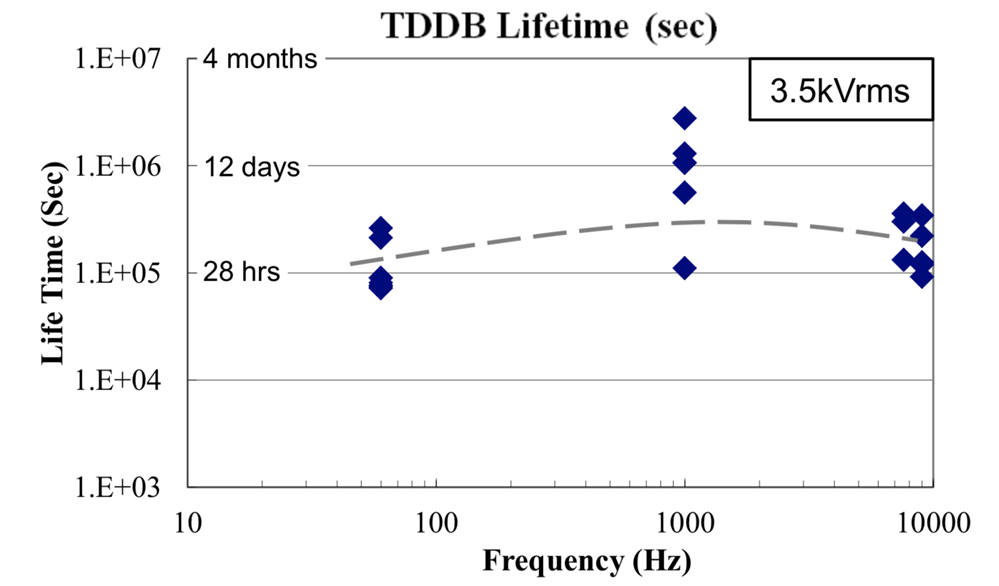Projected insulation lifetime is shown in Figure 42 of the ISOW7842 datasheet but this information pertains to 60 Hz sinusoidal voltage. I believe the underlying failure mode is charge injection and consequently insulation lifetimes for DC applications may be considerably longer than AC lifetimes. However, for pulsed applications (i.e. isolation for MOSFET/IGBT gate drivers) I suspect that insulation lifetime may also depend on switching frequency as well as dV/dt. If this is true it would seem insulation lifetime may be significantly reduced in some applications. Application note SLYY063A makes reference to the maximum repetitive voltage (VIORM) and gives the example of gate control for a high-side IGBT in a motor drive system but does not mention switching frequency or rise/fall time. Can you comment on how insulation lifetime can be determined for such applications based on peak voltage, rise/fall time, and frequency?
-
Ask a related question
What is a related question?A related question is a question created from another question. When the related question is created, it will be automatically linked to the original question.


